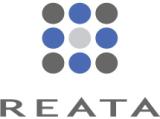Reata’s PAH Therapy Granted Orphan Drug Designation
Written by |

 Irving, Texas-based Reata Pharmaceuticals, Inc. has been granted orphan drug designation from the U.S. Food and Drug Administration (FDA) for its pulmonary arterial hypertension (PAH) treatment. The FDA’s Office of Orphan Products Development (OOPD) awarded the designation to bardoxolone methyl due to its novel mechanism of action and its potential ability to improve the quality of life of PAH patients.
Irving, Texas-based Reata Pharmaceuticals, Inc. has been granted orphan drug designation from the U.S. Food and Drug Administration (FDA) for its pulmonary arterial hypertension (PAH) treatment. The FDA’s Office of Orphan Products Development (OOPD) awarded the designation to bardoxolone methyl due to its novel mechanism of action and its potential ability to improve the quality of life of PAH patients.
PAH, a life-threatening and rare medical condition, is associated with endothelial dysfunction, pulmonary vasoconstriction, vascular remodeling, pulmonary fibrosis and right ventricular hypertrophy, as well as skeletal muscle dysfunction. Abnormality in the muscles in PAH patients causes exercise intolerance, but since bardoxolone methyl is an antioxidant, anti-inflammatory, and bioenergetic therapy, it has been proven effective in preclinical studies in increasing exercise tolerance.
[adrotate group=”4″]
“Pulmonary arterial hypertension is a devastating disease for patients and significantly decreases their quality of life and lifespan,” said the chief medical officer of Reata, Colin Meyer, MD, in a press release. “The FDA’s decision to grant orphan designation is an important step in the development of bardoxolone methyl to potentially treat this population with high unmet need. We believe the novel mechanism of activating Nrf2 has profound bioenergetic effects which have the potential to meaningfully impact the course of disease.”
Reata began enrolling patients for its phase 2 dose-ranging clinical trial called LARIAT last June, which is designed to evaluate bardoxolone methyl and assess its safety, tolerability and efficacy in PAH patients. With the primary efficacy endpoint being a six minute walk test, the double-blind, randomized, dose-ranging, placebo-controlled study is currently being conducted at investigational testing sites across the U.S.
[adrotate group=”3″]
Orphan drug status is granted to promising novel drugs or biologics thought to be able to treat medical conditions considered rare or that affect less than 200,000 people in the United States. Among the benefits from being granted the designation are seven years of market exclusivity after the drug’s approval, tax credits for clinical research costs and application fees reductions.
Reata is dedicated to translating innovative research into breakthrough medicines for difficult-to-treat diseases with significant unmet needs. Their approach specifically involves developing a novel class of drugs with potent transcriptional activity, called antioxidant inflammation modulators (AIMs), which are expected to control the body’s production of hundreds of anti oxidative and cytoprotective molecules and associated with protection against a broad range of diseases involving inflammation and oxidative stress, improving the lives of patients who suffer from PAH and potentially other diseases as well.



